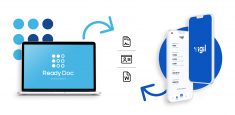Press Releases
Intiva Health Tackles Healthcare Interoperability with Medical Credentialing Software
Published: February 21, 2022
AUSTIN, Texas, February 21, 2022 – Interoperability in healthcare remains a widespread complication affecting multiple industry sectors, despite multiple advances in digital health technology.
 At its core, healthcare interoperability is the capability of multiple electronic systems to exchange healthcare information and enable accessibility of the information upon receipt. Barriers to interoperability in healthcare can have disastrous consequences on administrative processes—especially credentialing healthcare professionals. Delays in verifying or obtaining credentials can impede patient care, prevent payer enrollment, result in medical errors, and cost the industry millions of dollars.
At its core, healthcare interoperability is the capability of multiple electronic systems to exchange healthcare information and enable accessibility of the information upon receipt. Barriers to interoperability in healthcare can have disastrous consequences on administrative processes—especially credentialing healthcare professionals. Delays in verifying or obtaining credentials can impede patient care, prevent payer enrollment, result in medical errors, and cost the industry millions of dollars.
Vigil, a unique medical smartphone app developed by Intiva Health, directly tackles the issue of credentialing and healthcare interoperability. The app allows healthcare providers to upload credentials using their phone’s camera. The digital credentials are then securely stored in their “Vigil Vault”. This personal safe of credentials is protected by Hashgraph Distributed Ledger Technology (DLT) for an extra layer of data security and verification using immutable timestamps.
To solve the issue of interoperability, the Vigil app is integrated with Intiva Health’s medical credentialing software Ready Doc™, which is used by more than 100,000 licensed medical professionals working in hospital systems, healthcare networks, and medical facilities of all sizes across the country. Administrators can easily access or share credentials within the Ready Doc™ platform which were uploaded by physicians using the Vigil app. At the same time, the Ready Doc™ platform connects with the Vigil App and credentials uploaded in a provider’s profile are transferred to their Vigil Vault. At that point forward, the medical credentialing process becomes hassle-free as all credentials can be used for appointments, privileges, payer enrollment, license renewal, and more on a single platform.
Traditionally, interoperability in healthcare focuses on facilitating communication and the exchange/use of patient information between healthcare professionals and to a certain extent their patients. In recent times, the need for improving healthcare interoperability with respect to healthcare provider information is becoming increasingly important.
Improved interoperability in healthcare can aid in the overall reduction of administrative burden—the expenses which patients, healthcare professionals, and payers incur as part of the approach to deliver healthcare. Research shows that approximately 15% and sometimes all the way up to 30% of total healthcare spending goes toward administrative burden. This does not include the psychological impact on an already strained healthcare workforce and their need to complete additional administrative tasks—one of the top causes of physician burnout.
Credentialing software must provide multiple avenues to reduce the need for paperwork and the time-consuming process of manually entering data. This can be achieved through features such as digital forms, automated provider data entry, electronic signatures, and automated payer enrollment. An all-in-one SaaS platform such as Ready Doc™ by Intiva Health can accomplish these administrative tasks and ultimately save time, save money, and reduce the risk of a compliance breach for healthcare facilities and their providers.
It is essential for medical facilities to access and securely share healthcare data between digital systems, medical devices, and applications at a hyperlocal or cross-organizational level. The largest hurdle hospital systems and healthcare networks face with interoperability is correctly matching the data with the corresponding person. This holds true for both patients and the healthcare professionals who treat them.
The ultimate benefits of improving healthcare interoperability are increased productivity, enhanced patient care, reduced costs, and improved security of patient and provider data from ransomware and other cyberattacks.
Developing solutions for these industry hurdles fits directly into the mission of Intiva Health to improve the health of healthcare for patients, providers, and facilities.